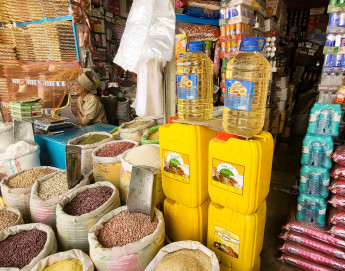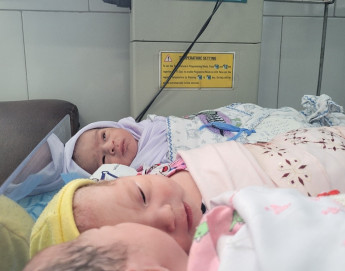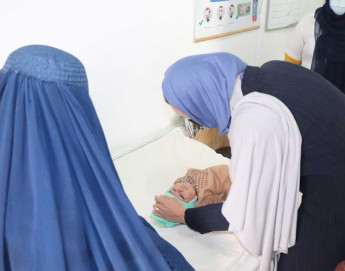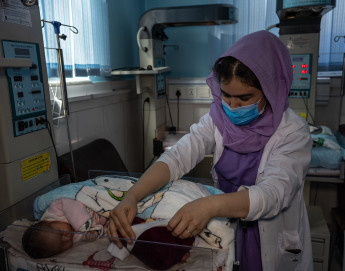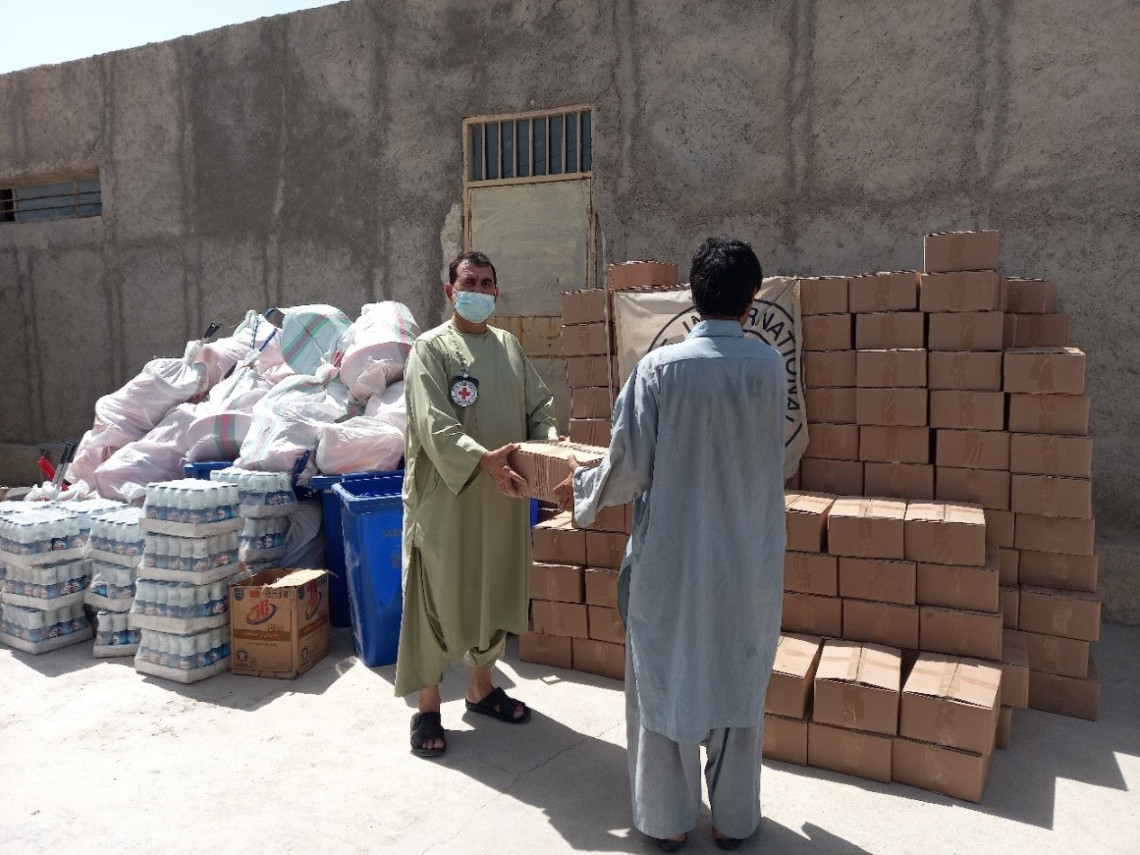
Afghanistan: Millions affected by growing humanitarian needs

The combined effects of a paralyzed banking system, lack of cash and job opportunities, loss of income and the consequences of decades of war, are having a devastating effect on the ability of Afghan families to provide for themselves and meet their basic needs. Economic sanctions deepened an already dire economic situation.
The ICRC continues to provide life-saving and life-changing support to hundred of thousands of people across the country to help them face the increasingly difficult situation they are on a daily basis. This gallery presents some of the key projects the ICRC has been implementing at the service of the Afghan population since August 2021.
Access to health care remains a major concern for communities across Afghanistan. After decades of war and many months of economic hardship, thousands of health facilities continue to struggle with limited funding and resources. The banking and liquidity crisis are having a direct and huge impact on the health system.
ICRC has taken concrete steps to save lives through its Hospital Resilience Project (HRP). The project is supporting 33 large hospitals with a total capacity of 7,057 beds. The health services are expected to reach an estimated target population of 26 million people. This support includes the payment of the salaries of 10,483 health workers (around one third - 33% - of which are women), as well as running costs and drugs.
More than half (55%) of the Afghan population, 24.4 million people, is in need of humanitarian assistance. Since August 2021, the combined effects of a paralyzed banking system, lack of liquidity, loss of income, lack of job opportunities and the consequences of fighting, are having a devastating effect on the ability of Afghan families to provide for themselves and meet their basic needs.
The ICRC economic security programs focus on relief to help vulnerable people absorb the shock and livelihood support to boost food production and generate income. Two hundred eight households participated in a cash-for-work project aiming at cleaning irrigation canals in Gulbahar. This improved irrigation will benefit the agricultural lands of an estimated 9,950 farmers in the area.
Despite the overall decrease in fighting across Afghanistan since August 2021, hundreds of people continue to be injured and killed by mines and explosive remnants of war. Prevention and physical and social rehabilitation for the victims is a key challenge and a long-time priority for the ICRC. Between January and July 2022, the ICRC supported over 99,400 people with physical disabilities in the 7 physical rehabilitation centers it runs across Afghanistan.
The departure of development agencies from Afghanistan after the change of government in August 2021 has put many big infrastructure projects on hold, mounting pressure on the already overstretched water supply infrastructure. The lack of safe drinking water for millions of people could lead to waterborne diseases such as acute watery diarrhea, thus further straining the health sector.
Between January and July 2022, the ICRC improved access to safe drinking water for nearly 1.5 million people across the country by repairing hand pumps, building or rehabilitating water towers and supply networks, and/or donating fuel, equipment, consumables and spare parts.
The energy sector in Afghanistan depends mainly on electricity imported from neighbouring countries: Iran, Uzbekistan, Turkmenistan and Tajikistan. This import accounts for around 70% of the energy supply in Afghanistan while the rest is produced locally.
The ICRC provided over 2.3 million liters of fuel and nearly 6,000 liters of engine oil and spare parts to the DABS, the electricity provider in Afghanistan, to ensure the optimal performance of their generators for the whole period when the Kajaki dam was offline for upgrade and maintenance. This support provided a minimum of 2 to 3 hours of electricity per day for the 675,000 residents of Kandahar and Lashkargah and critical infrastructure of both cities for seven weeks.
Detainees have the right to access health care services and decent living conditions. Between January and July 2022, the ICRC visited over 6,900 detainees in 17 places of detention to monitor their living conditions.
Additionally, 10,000 detainees received food and hygiene items on a monthly basis and over 13,770 detainees benefited in 48 places of detention from provision of fuel, oil and repairing of the infrastructure through the maintenance program and donation of hygiene items to improving of living conditions.

